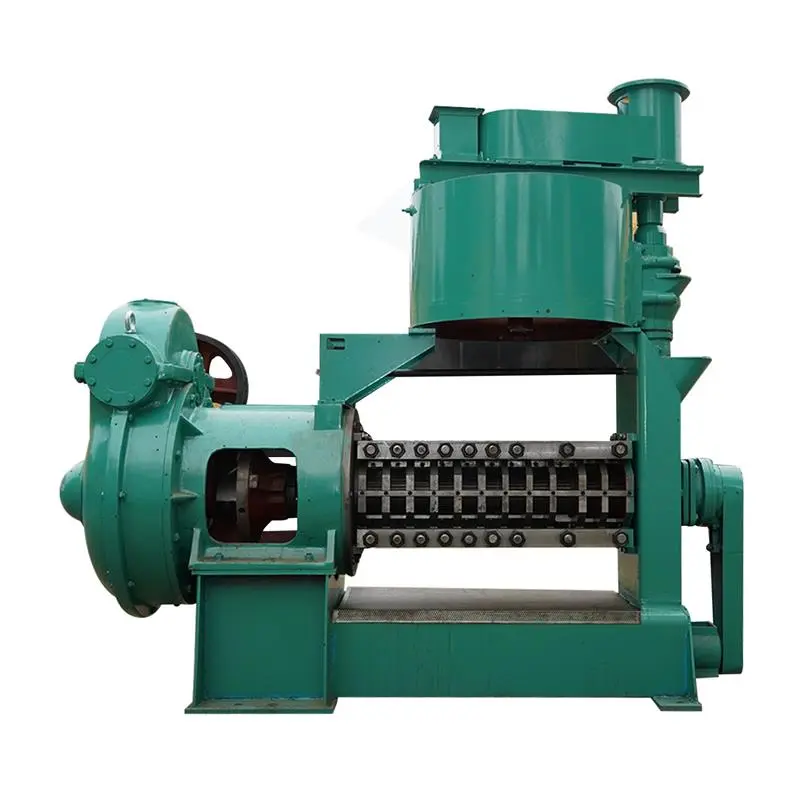Jul . 26, 2024 07:10 Back to list
Sunflower Oil Production Facility for High-Quality Oil Extraction and Sustainable Processing Solutions
The Importance of Sunflower Oil Press Factories in the Edible Oil Industry
Sunflower oil has emerged as one of the most popular cooking oils globally, well-regarded for its light flavor and high smoke point, making it suitable for various culinary applications. This demand has led to the establishment of sunflower oil press factories, which play a crucial role in transforming sunflower seeds into one of the world’s favorite cooking oils. This article delves into the significance of these factories in the edible oil industry, their operational mechanisms, and the benefits they provide to both consumers and producers.
Operational Mechanism of Sunflower Oil Press Factories
Sunflower oil press factories utilize advanced technologies and processes to extract oil from sunflower seeds. The journey begins with the careful selection of high-quality seeds, which are then cleaned and dried to remove impurities. The extraction process can be performed using two primary methods mechanical pressing and solvent extraction.
Mechanical pressing involves crushing the seeds to release the oil, which is a more traditional and environmentally friendly method. It retains most of the natural flavors and nutrients of the oil. On the other hand, solvent extraction uses chemical solvents like hexane to extract oil, often yielding higher volumes but may leave trace residues that can lead to health concerns. Most modern facilities combine both methods to maximize efficiency and ensure the quality of the final product.
After extraction, the oil is refined to remove impurities, odors, and colors, resulting in the light, clear oil that consumers love. This refining process not only improves the oil's shelf life but also enhances its overall quality. The final stages include bottling and packaging, preparing the product for distribution to consumers and businesses alike.
Benefits of Sunflower Oil Press Factories
sunflower oil press factory

1. Economic Impact Sunflower oil press factories generate significant economic benefits. They provide employment opportunities for many people, from farmers who supply the sunflowers to factory workers involved in various stages of production. Additionally, these factories contribute to the local economy by purchasing raw materials and supporting related industries.
2. Health Benefits Sunflower oil is considered a healthier alternative to many other cooking oils due to its high content of unsaturated fats, particularly linoleic acid. It is also rich in vitamin E, an important antioxidant that can help protect the body from free radicals. By producing high-quality sunflower oil, these factories promote healthier cooking practices among consumers.
3. Sustainability Many sunflower oil press factories are increasingly adopting sustainable practices. They source seeds from local farmers, reducing transportation emissions and supporting local agricultural economies. Furthermore, some factories have started utilizing waste byproducts, such as sunflower seed meal, for animal feed, thereby minimizing waste and promoting a circular economy.
4. Global Reach The production of sunflower oil is not limited to any specific region; it is a global industry. Sunflower oil press factories promote international trade, allowing countries that may not have the climate suitable for sunflower cultivation to import high-quality lubricant products. This contributes to global food security and consumer choices.
Conclusion
Sunflower oil press factories are fundamental to the edible oil industry, bridging the gap between agriculture and consumer markets. They not only provide essential products that contribute to healthier cooking but also bolster local economies and promote sustainable practices. As the demand for sunflower oil continues to rise, the importance of these factories will only grow, underscoring their vital role in modern food production and consumption. By supporting and investing in sunflower oil press factories, we can ensure a robust and healthy future for both people and the planet.
-
High-Efficiency Peanut Oil Refined Machine for Quality Oil Production Leading Exporters & Companies
NewsJul.08,2025
-
High Efficiency Sunflower Seed Oil Press – Leading Cooking Oil Press Machine Factories & Suppliers
NewsJul.08,2025
-
High-Efficiency Soybean Oil Press Machine – Leading Exporters & Reliable Companies
NewsJul.07,2025
-
High-Efficiency Seed to Oil Extractor – Reliable Extraction Machinery for Your Business
NewsJul.07,2025
-
High-Quality Pressing Screw of Oil Expeller for Efficient Oil Extraction Leading Exporters & Manufacturers
NewsJul.06,2025
-
High-Efficiency Essential Oil Extraction Machine Trusted Exporters & Companies
NewsJul.06,2025
